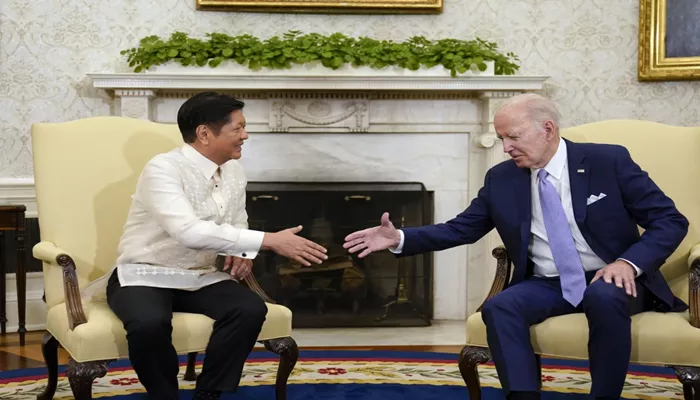Philippines to Temporarily Host Afghan Nationals for U.S. Visa Processing.
MANILA, Philippines (AP) — The Philippines has agreed to temporarily host a U.S. immigrant visa processing center for a select number of Afghan nationals seeking resettlement in the United States, the governments of both nations announced on Tuesday.
This decision, which faced initial concerns over security and legal implications, highlights the strengthening relationship between the Philippines and the U.S. under President Ferdinand Marcos Jr., who assumed office in 2022.
The Department of Foreign Affairs in Manila stated that the agreement is currently undergoing final domestic procedures and awaits ratification by President Marcos. Specific details, including the number of Afghans who will be allowed to stay in the Philippines while their U.S. visas are processed, have not been disclosed.
However, a senior Philippine official, speaking anonymously due to the sensitivity of the information, revealed that between 150 to 300 Afghan applicants will be accommodated in the Philippines under this “one-time” arrangement.
Assistant Secretary Teresita Daza, spokesperson for the Department of Foreign Affairs, emphasized that Afghan nationals must obtain a visa to enter the Philippines and will undergo thorough security vetting. Each applicant will be allowed to stay for no more than 59 days.
The U.S. government will cover the costs associated with the stay, including food, housing, security, and medical and transportation expenses, according to Daza. Additionally, the U.S. government, along with the International Organization for Migration, which will manage the facility where the Afghan visa applicants will be housed, will provide social, educational, religious, and other support services.
In a statement, the U.S. State Department expressed gratitude to the Philippines for supporting Afghan allies and highlighted the long-standing positive history of bilateral cooperation between the two nations.
The Afghan nationals eligible for resettlement are primarily those who worked for the U.S. government in Afghanistan or qualify for U.S. special immigrant visas but were left behind after the U.S. withdrawal in 2021, when the Taliban regained control of the country.
U.S. Secretary of State Antony Blinken initially presented this request to his Philippine counterpart in 2022, and President Joe Biden discussed it further during President Marcos’ visit to the U.S. last year.
President Marcos mentioned last year that American officials indicated that up to 1,000 Afghan nationals could be accommodated in the Philippines at any one time during the visa processing period. He also acknowledged the legal and logistical challenges that needed to be addressed for the program to operate effectively.
Some Filipino officials have expressed concerns about the potential security risks to Afghan nationals while they are in the Philippines, as well as the legal implications of allowing U.S. authorities to play a role in vetting those who enter the country.
One key issue is how to handle Afghan nationals whose U.S. visa applications are delayed or denied, potentially leaving them stranded in the Philippines while awaiting resolution.
Since taking office, President Marcos has revitalized ties with the U.S., including approving an expansion of the American military presence in the Philippines under a 2014 defense agreement. This move, announced in February last year, was met with warnings from China that it could destabilize the region by providing U.S. forces with a strategic position to influence issues in the South China Sea and Taiwan.


